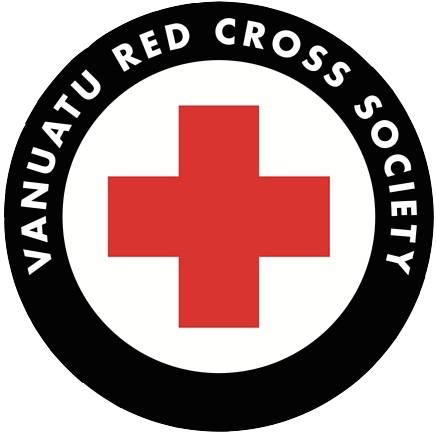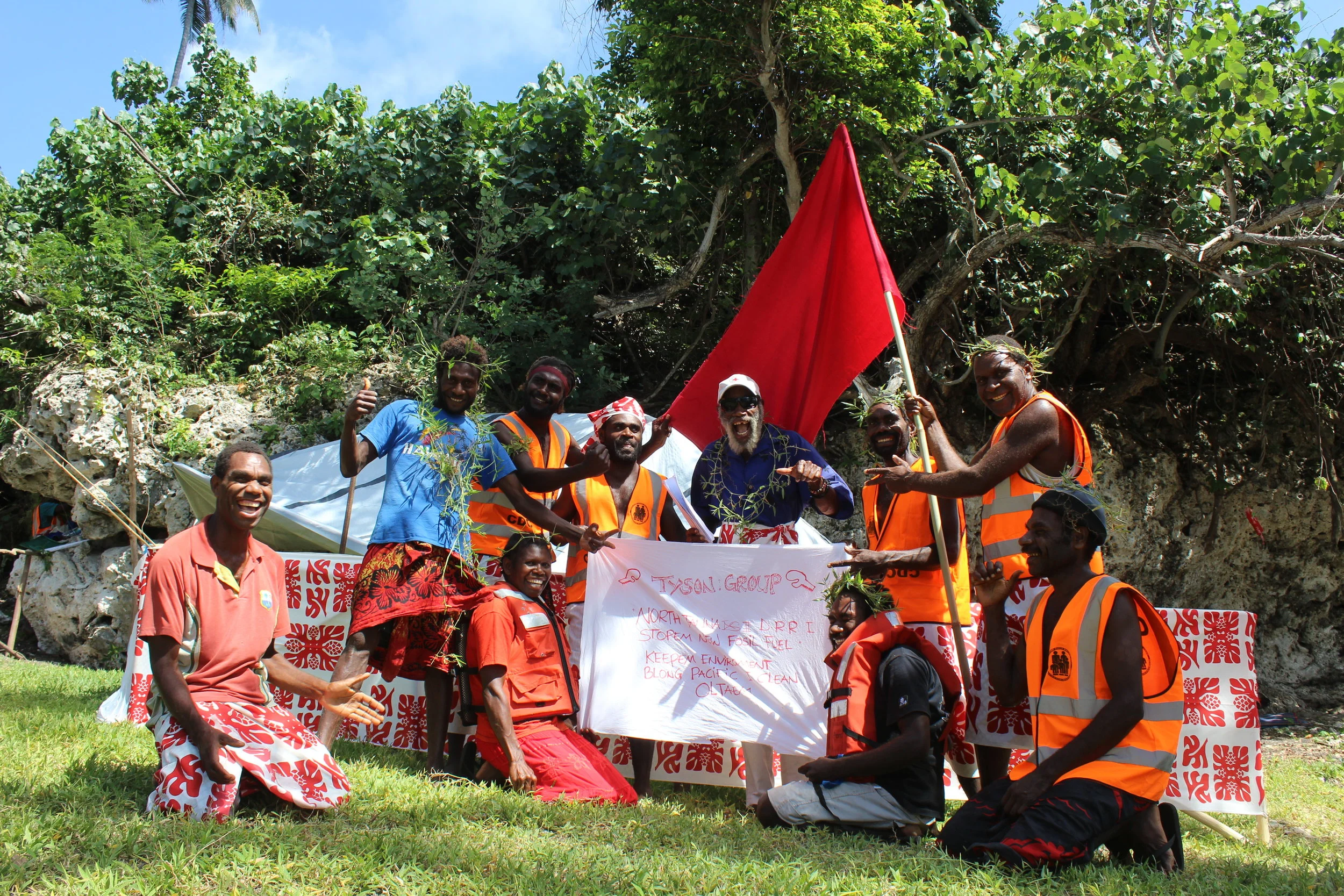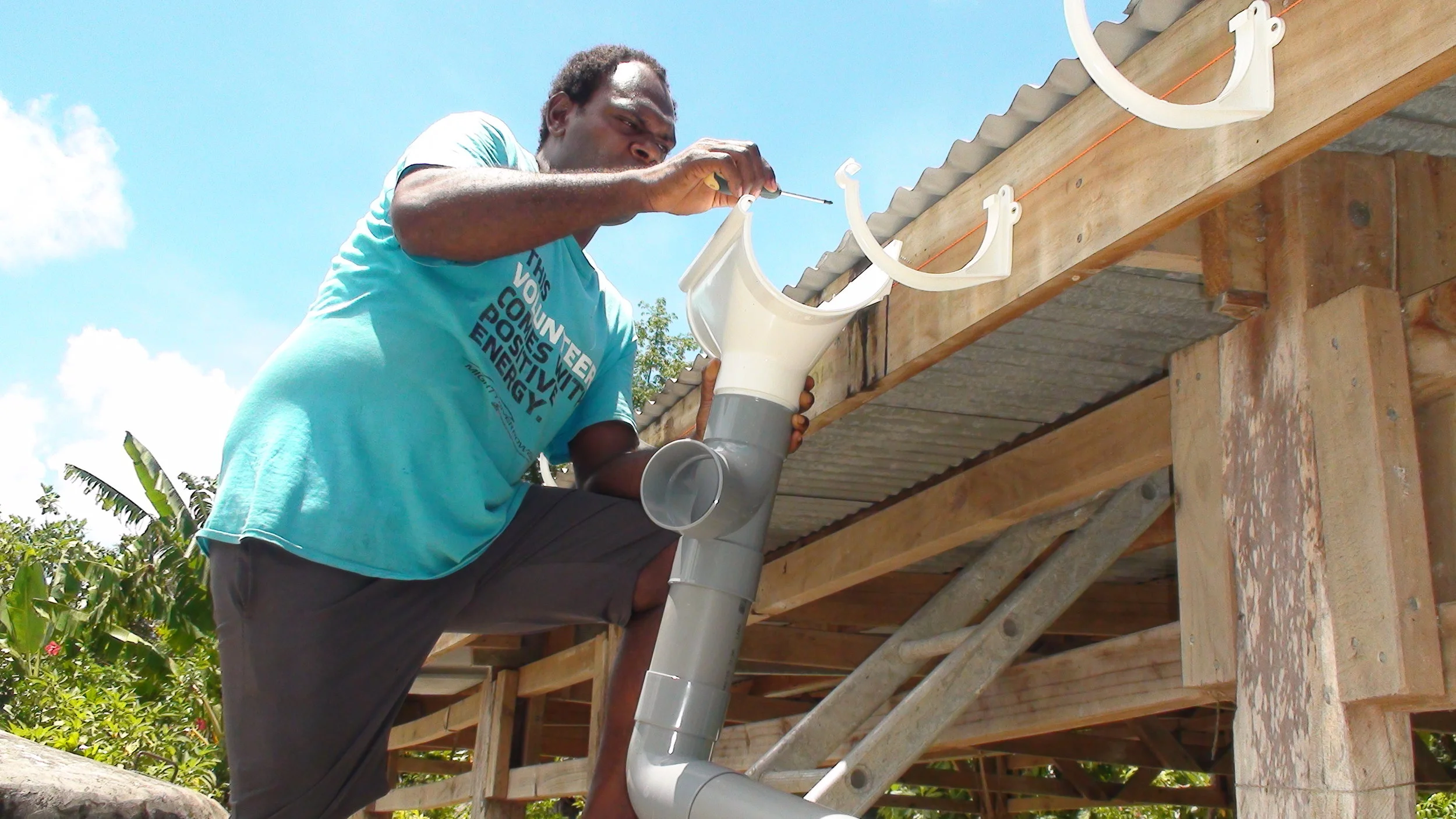VRCS implements a recovery project in Pentecost Island to enhance the resilience of 11 communities with funding support from the European Union.
(08 July 2021) North and Central Pentecost - Following the impact of tropical cyclone Harold which severely affected Pentecost Island, Vanuatu Red Cross Society (VRCS) has been at the forefront of emergency response providing life-saving services. Recognizing the need for the re-establishment of food security, livelihoods while ensuring gender inclusion, VRCS continues to provide support to the affected communities through the project “Supporting Community Resilience through Household Food Security and Women’s Empowerment”. It is funded by the European Union (EU) in partnership with the International Federation of the Red Cross and Red Crescent Societies (IFRC).
The project intends to contribute towards food security by integrating an early warning system and seasonal forecast as a guide for farmers in determining cropping patterns and choosing crop varieties that are either drought or flood-resistant. As experienced with the past tropical cyclones, weather plays a determinant role in the success or failure of crop productions. Providing regular seasonal weather forecasts will enable communities to better adapt to the changing weather patterns.
Increase awareness in the proper handling and utilization of food to contribute towards health and nutrition is likewise given focus. It is done by providing mothers’ and women’s groups with various opportunities to enhance their knowledge. This includes techniques in improving backyard food production, nutritional values of specific food groups locally available, handling and cooking, and cooking demonstrations in their communities.
The EU-funded project covered Water, Sanitation and Hygiene (WASH) measures as an integral approach to women’s protection. In particular, the improvement of access to safe drinking water resources, provision of water transport container and household storage of drinking water, and the provision of latrines are contributing towards a better protection and dignity for women and girls. In addition, for backyard gardens and small crop production farms, water conservation practices and the use of domestic wastewater is promoted and also a small-scale irrigation is provided.
The promotion of women’s participation is core to the implementation of the recovery project. The project aims to be inclusive and emphasizes economic empowerment of women, protection, and inclusion - through the VRCS Penama Branch working alongside the Penama Provincial Government, the Village Disaster and Climate Change Committees, and local entrepreneurs - creates opportunities for women to be involved in commerce and have leadership roles in local authority structures.
This project comes at an opportune time after the communities were affected by TC Harold and the consequent economic impact of the COVID-19, both of which have caused the dramatic decrease of economic opportunities across Vanuatu and created a domino-effect down to the level of subsistence economy. Through the project, the partnership between VRCS, IFRC, and the EU will strive to enhance the coping mechanisms of the community, linking recovery to resilience programming.
According to the Interim General Secretary Mr. Dickinson Tevi “To date, the following activities were implemented as the first steps in preparation towards the project activities rollout in the selected eleven communities. Project orientation conducted in selected communities and stakeholders completed the process of signing the Memorandum of Understanding with community leaders in the selected communities”.
The project “Supporting Community Resilience through Household Food Security and Women’s Empowerment” is being implemented in North Pentecost covering the villages of Arongbwaratu, Angoro, Anmalabua, Arevo, and Latano. In Central Pentecost 1 covering Ena, Naruwa, and Lamatete. In Central Pentecost 2 which includes Ilamre, and Melsisi. On the eastern side, the sole community of Varansini.
“We are so happy to see the Red Cross team coming to us build the knowledge of our people in various areas like Covid19 best practices, including hygiene practices, how we can prepare ourselves for any future disaster. We haven’t heard of Red Cross before, but we are thankful to have the Red Cross as a Government partner to assist us. We are ready to support the work of the Red Cross and thanks to the European Union for choosing our island to implement these activities” said Chief Robinson Siba from Angoro village in North Pentecost.
VRCS Branch Board Chairman Derick Bulu and Disaster Management Coordinator Augustin Garae witnessed Chief Hatchinson John Bogiri at Anvoro village signing the Memorandum of Understanding.











